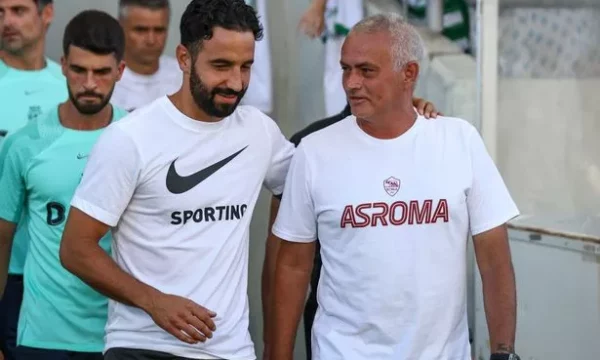Benfica’s coach, José Mourinho, believes football has changed a lot since the start of his 25-year career as a manager.
Mourinho returned to the “Estádio da Luz” last month after his dismissal from Fenerbahçe, and while preparing for a season that never unfolded in Istanbul, he spoke about the importance of adaptation and said that winning is more important than sticking strictly to a fixed system. “Today there is no longer a single model of play,” Mourinho told Canal 11 in July.
“There are many ways to play. There’s no longer a unique tactical system, but many ways to build and defend. This requires more tactical preparation, where players must grow and gain new knowledge. The problem is the desire to copy without having the conditions to do so.”
He pointed out that his long-time rival, Pep Guardiola, has had the ability to recognize when he didn’t have the players necessary to play the game he wanted.
“Not every coach has the luxury of discarding Joe Hart and bringing in Ederson,” said Mourinho. “Some coaches try things that don’t work and fail, but they say, ‘I died with my idea.’ If you die with your idea, you’re crazy. Coaches must adapt their ideas to what they have.”
One coach who might take his advice into account is Ruben Amorim, his compatriot and currently the manager of Manchester United. Amorim has stood firmly by his tactical approach, even though the results suggest otherwise. His formation, based on a three-man defense, does not seem to maximize the squad’s strengths. United have lost three league games this season and were knocked out of the Carabao Cup by Grimsby Town. Mourinho added:
“Today there are coaches I don’t even know by name who go to the Premier League, and I don’t say that disrespectfully, it’s true. Some coaches are chosen based on dates, numbers, not victories.”
A year after taking charge at “Old Trafford,” the former Sporting CP champion is facing questions about his tactics from the very start. United finished 15th in the Premier League last season, and every step forward is followed by a step back.
Despite the challenges, Amorim remains steadfast in his approach. He stated in September that “not even the Pope himself would make him change his mind.”


